|
By MAXMILIAN WECHSLER
Her Excellency Ms Raushan Yesbulatova, Ambassador Extraordinary and Plenipotentiary of the Republic of Kazakhstan to the Kingdom of Thailand, was appointed to this position in July 2017. She is also Permanent Representative of the Republic of Kazakhstan to the United Nations Economic and Social Commission for Asia and the Pacific (UN ESCAP).
Ambassador Yesbulatova has been accredited as Ambassador to the Republic of the Union of Myanmar on February 4 of this year. For more than three years Ambassador Yesbulatova has been one of the most active Ambassadors in Thailand working to bring both countries even closer – and she is succeeding in this endeavour.
Background
Born and raised in Almaty, Her Excellency Ambassador Raushan Yesbulatova graduated from the Institute of National Economy, Almaty in 1988. She also studied Management and Tourism in Vienna, Austria and graduated in 1995. “I love travelling, exploring new cultures, meeting new people, so tourism was a popular and natural choice for me. I have been in the diplomatic service since 1998. Between 2001-2005 I became the Second, First Secretary of Permanent Mission of the Republic of Kazakhstan to the United Nations, New York. From 2005-2006 I was Counsellor at the Embassy of the Republic of Kazakhstan to the USA, and after that in 2006 I returned to the Permanent Mission as a Counsellor. After three years of service as Counsellor, I was appointed as the Consul General of Kazakhstan. “My first acquaintance with Thailand happened in 1992 when I came here as a tourist. Thailand has left pleasant memories. After 25 years, I returned here as the Ambassador of Kazakhstan,” Ms Yesbulatova said. |
|
Kazakh-Thai relations
“Diplomatic relations between the Republic of Kazakhstan and the Kingdom of Thailand were established on July 6, 1992. In 1997, the Diplomatic Mission of the Republic of Kazakhstan in the Kingdom of Thailand was established, which at that time was one of the few Kazakhstan Diplomatic Missions in Southeast Asia. In 2012, the foreign office was reorganized into the Embassy. Our Embassy located in Witthayu Road consists of five diplomats, two administrative staff, and two local staff. “There are two Honorary Consulates of the Republic of Kazakhstan in the cities of Pattaya and Phuket in Thailand. “Despite their geographical remoteness, Kazakhstan and Thailand have a number of similar geopolitical characteristics that bring the two states closer together. Located in the heart of their regions – Central and Southeast Asia, Kazakhstan and Thailand are strategically located as natural transit hubs that attract the interest of world powers, both in terms of trade development and in the context of ensuring security. “Starting from the first steps at the head of independent Kazakhstan, Elbasy N. Nazarbayev, saw the great potential of the countries of Southeast Asia, including the Kingdom of Thailand. So, already in 1993, he made an official visit to Bangkok, which actually marked the beginning of bilateral cooperation between Kazakhstan and Thailand. Within the framework of the visit, an intergovernmental Agreement was signed on the establishment of a joint Kazakh-Thai commission on trade, economic, scientific, technical and cultural cooperation, which gave an impetus to intensify relations on a wide range of issues. |
“An additional impetus to the development of bilateral relations was given by the official visit of the Princess of Thailand Maha Chakri Sirindhorn to Kazakhstan on April 17-20, 2005. The distinguished guest was awarded the Order of Dostyk, II degree.
“In addition to relations in a bilateral format, Kazakhstan and Thailand are fruitfully cooperating within the framework of international organizations and regional associations. The proximity of positions on the global and regional agendas, modern challenges and threats creates prerequisites for active interaction on the platforms of the organizations of the UN system, CICA, ACD, ASEM and other multilateral structures.
“The universal nature and relevance of Nursultan Nazarbayev’s international initiatives in the field of nuclear disarmament and non-proliferation, as well as the fight against terrorism, became a catalyst for mutually beneficial cooperation between Kazakhstan and Thailand in these areas.
“An interesting fact is that Thailand was the main opponent of Kazakhstan in the struggle for a non-permanent seat on the UN Security Council for 2017-18. Despite Thailand’s rich experience and authority in the field of multilateral relations, Kazakhstan has become a worthy rival to the Kingdom, winning largely thanks to the international recognition of the Elbasy, which was also earned as a result of the global initiatives put forward by him.
“An important area of political interaction between Kazakhstan and Thailand is cooperation through parliaments. Deputies and senior officials of the Parliament of the Republic of Kazakhstan take an active part in the work of the Asian Forum of Parliamentarians on Population and Development, which is headquartered in Bangkok. In 2016 and 2018, the Deputy Chairman of the Mazhilis of the Parliament of the Republic of Kazakhstan Gulmira Isimbayeva paid a visit to Thailand, during which she met with the leadership and representatives of the Parliament of the Republic of Kazakhstan.
“Another confirmation of the high level of relations in this area was the visit to Nur-Sultan of the parliamentary delegation of Thailand, headed by the Chairman of the Senate of the National Assembly Mr Pornpetch Wichitcholchai, as part of the IV Meeting of Speakers of the Eurasian Countries’ Parliaments in September 2019.
“Promotion of trade and economic cooperation is an important point in relations between Kazakhstan and Thailand. It should be noted that according to the official statistical sources of the Republic of Kazakhstan, the trade turnover between Kazakhstan and Thailand has an annual tendency to increase:
• For 2016 - US$73.7 million (imports - $66.3 million, exports - $7.4 million);
• For 2017 - $93.2 million (imports - $92.1 million, exports - $1.1 million);
• For 2018 - $104.3 million (imports - $104.1, exports - $247.5 thousand).
• “At the end of 2019, trade between Kazakhstan and Thailand amounted to $129.6 million (imports - $129.5 million, exports - $119.4 thousand).
“The main items of Kazakhstan export are metal ores, musical instruments, chemical and mineral products. Imports – cars, auto parts, printers, telephones, machinery, polyethylene, finished products.
“According to the National Bank of Kazakhstan, the volume of Thai investments in Kazakhstan is $2.2 million. Kazakhstan invested $8.4 million in the Thai economy.
“It should be noted the growing interest in Kazakhstan from Thai investors. In 2019, a delegation of the Investment Council of Thailand visited the cities of Nur-Sultan and Almaty, on the basis of which a detailed report on the state of the economy and investment attractiveness of Kazakhstan was compiled.
“One of the instruments for the development of trade and economic relations is the Joint Kazakh-Thai Intergovernmental Commission, which met in 2002, 2012 and 2017. An important event that stimulated cooperation in the economic sphere was the active participation of Thailand in EXPO-2017. The Thai pavilion has become one of the largest and most attractive. During the exhibition, it was visited by over 700 thousand guests.
“Recently, there has been a progressive development in the oil and gas industry. On June 27, 2018, in Bangkok, a contract signing ceremony was held for the construction of the 5th line of the main gas pipeline between PTT Public Company Limited and the Kazakh company KazStroyService. This is a large infrastructure project worth more than 150 million US dollars, which a Kazakh company is implementing in Thailand. In 2019, the aforementioned Thai energy giant PTT Public Company Limited acquired the Portuguese company Partex Holding B.V., which owns a 20% stake in the Dunga project in the Mangistau region.
“An important stage in the development of cooperation in the economic sphere was the signing in 1996 of the Air Service Agreement, as a result of which it became possible to open regular direct flights on the Almaty-Bangkok route. Currently, the annual flow of Kazakh tourists to Thailand is about 70 thousand people. Considering the importance of the direction of tourism for the country's economy, the Government of Thailand decided to apply for free visas upon arrival for citizens of the Republic of Kazakhstan for a period of 15 days.
“In turn, the Government of Kazakhstan introduced a visa-free regime for Thai citizens from October 2019 for a period of 30 days. This measure was an important step towards enhancing bilateral cooperation in the field of tourism and investment.”
“In addition to relations in a bilateral format, Kazakhstan and Thailand are fruitfully cooperating within the framework of international organizations and regional associations. The proximity of positions on the global and regional agendas, modern challenges and threats creates prerequisites for active interaction on the platforms of the organizations of the UN system, CICA, ACD, ASEM and other multilateral structures.
“The universal nature and relevance of Nursultan Nazarbayev’s international initiatives in the field of nuclear disarmament and non-proliferation, as well as the fight against terrorism, became a catalyst for mutually beneficial cooperation between Kazakhstan and Thailand in these areas.
“An interesting fact is that Thailand was the main opponent of Kazakhstan in the struggle for a non-permanent seat on the UN Security Council for 2017-18. Despite Thailand’s rich experience and authority in the field of multilateral relations, Kazakhstan has become a worthy rival to the Kingdom, winning largely thanks to the international recognition of the Elbasy, which was also earned as a result of the global initiatives put forward by him.
“An important area of political interaction between Kazakhstan and Thailand is cooperation through parliaments. Deputies and senior officials of the Parliament of the Republic of Kazakhstan take an active part in the work of the Asian Forum of Parliamentarians on Population and Development, which is headquartered in Bangkok. In 2016 and 2018, the Deputy Chairman of the Mazhilis of the Parliament of the Republic of Kazakhstan Gulmira Isimbayeva paid a visit to Thailand, during which she met with the leadership and representatives of the Parliament of the Republic of Kazakhstan.
“Another confirmation of the high level of relations in this area was the visit to Nur-Sultan of the parliamentary delegation of Thailand, headed by the Chairman of the Senate of the National Assembly Mr Pornpetch Wichitcholchai, as part of the IV Meeting of Speakers of the Eurasian Countries’ Parliaments in September 2019.
“Promotion of trade and economic cooperation is an important point in relations between Kazakhstan and Thailand. It should be noted that according to the official statistical sources of the Republic of Kazakhstan, the trade turnover between Kazakhstan and Thailand has an annual tendency to increase:
• For 2016 - US$73.7 million (imports - $66.3 million, exports - $7.4 million);
• For 2017 - $93.2 million (imports - $92.1 million, exports - $1.1 million);
• For 2018 - $104.3 million (imports - $104.1, exports - $247.5 thousand).
• “At the end of 2019, trade between Kazakhstan and Thailand amounted to $129.6 million (imports - $129.5 million, exports - $119.4 thousand).
“The main items of Kazakhstan export are metal ores, musical instruments, chemical and mineral products. Imports – cars, auto parts, printers, telephones, machinery, polyethylene, finished products.
“According to the National Bank of Kazakhstan, the volume of Thai investments in Kazakhstan is $2.2 million. Kazakhstan invested $8.4 million in the Thai economy.
“It should be noted the growing interest in Kazakhstan from Thai investors. In 2019, a delegation of the Investment Council of Thailand visited the cities of Nur-Sultan and Almaty, on the basis of which a detailed report on the state of the economy and investment attractiveness of Kazakhstan was compiled.
“One of the instruments for the development of trade and economic relations is the Joint Kazakh-Thai Intergovernmental Commission, which met in 2002, 2012 and 2017. An important event that stimulated cooperation in the economic sphere was the active participation of Thailand in EXPO-2017. The Thai pavilion has become one of the largest and most attractive. During the exhibition, it was visited by over 700 thousand guests.
“Recently, there has been a progressive development in the oil and gas industry. On June 27, 2018, in Bangkok, a contract signing ceremony was held for the construction of the 5th line of the main gas pipeline between PTT Public Company Limited and the Kazakh company KazStroyService. This is a large infrastructure project worth more than 150 million US dollars, which a Kazakh company is implementing in Thailand. In 2019, the aforementioned Thai energy giant PTT Public Company Limited acquired the Portuguese company Partex Holding B.V., which owns a 20% stake in the Dunga project in the Mangistau region.
“An important stage in the development of cooperation in the economic sphere was the signing in 1996 of the Air Service Agreement, as a result of which it became possible to open regular direct flights on the Almaty-Bangkok route. Currently, the annual flow of Kazakh tourists to Thailand is about 70 thousand people. Considering the importance of the direction of tourism for the country's economy, the Government of Thailand decided to apply for free visas upon arrival for citizens of the Republic of Kazakhstan for a period of 15 days.
“In turn, the Government of Kazakhstan introduced a visa-free regime for Thai citizens from October 2019 for a period of 30 days. This measure was an important step towards enhancing bilateral cooperation in the field of tourism and investment.”
Investment opportunities
“For more than a quarter of a century our countries have made significant progress in all areas of cooperation. Kazakhstan has absolute intention to further develop both bilateral and multilateral political relations and expand trade and economic cooperation.
“Therefore, we put big importance to promoting ‘economic’ diplomacy, particularly development of trade, economic and investment cooperation.
“As measures to strengthen the economic and investment direction, last year, a number of Thai business missions visited different regions of Kazakhstan and held a several meetings with potential partners.
“The delegation of the Board of Investment and Research Institute of Fiscal Policy of Thailand also paid a visit.
“The same time, the current volume of trade and investment exchange between Kazakhstan and Thailand does not correspond to the existing potential.
“Kazakhstan sees great potential in developing cooperation in such fields as agriculture. Thailand has big experience in this sphere. Particularly in processing of agricultural products. Also, Thailand is one of the biggest producers of rice, seafood and tropical fruits. We are also inviting investors from Thailand to invest in processing of agriculture products in our country.
“Kazakhstan sets a goal to become one of the 30 most developed countries in the world, for which the Government is taking comprehensive measures to modernize the country’s economy.
“Today, Kazakhstan is particularly interested in attracting investors who are looking for the efficiency of their investments and are ready to consider Kazakhstan as a platform for the production of goods and services with high added value for further exports. In this regard, with the technical support of the World Bank, a National Investment Strategy for 2018-2022 has been developed, which provides for a number of systematic measures to support both new and existing investors.
“According to the World Bank Doing Business 2019 report, in the overall ranking on ease of doing business, Kazakhstan ranks 25th, and in terms of ‘protecting minority investors’ – 7th place out of 190 countries of the world.
“Kazakhstan’s economy is the largest in Central Asia, accounting for 60% of the region’s total GDP. In general, since 1991, about 400 billion US dollars of foreign direct investment has been attracted.
“Today, the country's foreign trade turnover exceeds the total turnover of the rest of Central Asia. The main foreign trade partners of Kazakhstan are the European Union, Russia and China.
“For more than a quarter of a century our countries have made significant progress in all areas of cooperation. Kazakhstan has absolute intention to further develop both bilateral and multilateral political relations and expand trade and economic cooperation.
“Therefore, we put big importance to promoting ‘economic’ diplomacy, particularly development of trade, economic and investment cooperation.
“As measures to strengthen the economic and investment direction, last year, a number of Thai business missions visited different regions of Kazakhstan and held a several meetings with potential partners.
“The delegation of the Board of Investment and Research Institute of Fiscal Policy of Thailand also paid a visit.
“The same time, the current volume of trade and investment exchange between Kazakhstan and Thailand does not correspond to the existing potential.
“Kazakhstan sees great potential in developing cooperation in such fields as agriculture. Thailand has big experience in this sphere. Particularly in processing of agricultural products. Also, Thailand is one of the biggest producers of rice, seafood and tropical fruits. We are also inviting investors from Thailand to invest in processing of agriculture products in our country.
“Kazakhstan sets a goal to become one of the 30 most developed countries in the world, for which the Government is taking comprehensive measures to modernize the country’s economy.
“Today, Kazakhstan is particularly interested in attracting investors who are looking for the efficiency of their investments and are ready to consider Kazakhstan as a platform for the production of goods and services with high added value for further exports. In this regard, with the technical support of the World Bank, a National Investment Strategy for 2018-2022 has been developed, which provides for a number of systematic measures to support both new and existing investors.
“According to the World Bank Doing Business 2019 report, in the overall ranking on ease of doing business, Kazakhstan ranks 25th, and in terms of ‘protecting minority investors’ – 7th place out of 190 countries of the world.
“Kazakhstan’s economy is the largest in Central Asia, accounting for 60% of the region’s total GDP. In general, since 1991, about 400 billion US dollars of foreign direct investment has been attracted.
“Today, the country's foreign trade turnover exceeds the total turnover of the rest of Central Asia. The main foreign trade partners of Kazakhstan are the European Union, Russia and China.
“Hereby I want to highlight competitive advantages of Kazakhstan in the field of foreign trade. They are:
• Agreement on the Eurasian Economic Union (EAEU), effective from January 1, 2015;
• Neighborhood with China and close trade relations between China and the EU member states, mainly in the energy sector.
“Along with Armenia, Belarus, Kyrgyzstan and Russia, Kazakhstan is a member state of the EAEU – an international integration economic association. Kazakhstan's membership in the EAEU gives investors the opportunity to enter the Russian market (more than 140 million people) and the common market of the union (more than 180 million) and 235 million of population in countries bordering the Caspian Sea.
“The EEU has good opportunities for partnership with the European Union, the countries of the Middle East, Southeast and South Asia. An agreement on free trade has already been concluded with Vietnam, in the elaboration of similar documents with Serbia, Israel and other countries.
“In order to increase the investment attractiveness, the Government of Kazakhstan continues work on improving the production and transport infrastructure. Kazakhstan, as the largest landlocked state in the world, has an advantageous geographical position at the junction of two parts of the world – Europe and Asia. The main advantage of transit through our republic is the reduction of the period and distance from producer to consumer from Asian countries to European countries.
“Despite sea transportation, the delivery time by land through Kazakhstan is reduced by 2-3 times – from 35-40 to 12-15 days. Participation in projects for the development of a regional logistics hub will allow Kazakhstan’s partners to gain considerable benefits from the transit of goods and the growing trade turnover between China and the West. At the same time, it should be mentioned that for eight years now the volume of container transit between China and Europe through Kazakhstan has doubled annually, and we expect that by 2020 this volume will reach two million containers.
“From my point of view Thai investors would also be interested to know about Astana International Financial Centre (AIFC) which is a financial hub for Central Asia, the Caucasus, EAEU, the Middle East, West China, Mongolia and Europe. The Centre situated within EXPO-2017 and supported by modern infrastructure & the latest technology.
“In December 2015 President of the Republic of Kazakhstan Nursultan Nazarbayev signed the Constitutional law ‘On the Astana International Financial Centre’. The aim of the AIFC is to form a leading international centre of financial services. For the first time in post-Soviet region English Common law framework has been introduced in the AIFC. The objectives of the AIFC are to attract investment into the economy through the establishment of an attractive environment for investment in the financial services, to develop local capital markets, to ensure their integration with the international capital market, and to develop markets for insurance and banking services and for Islamic financing in the Republic of Kazakhstan.”
• Agreement on the Eurasian Economic Union (EAEU), effective from January 1, 2015;
• Neighborhood with China and close trade relations between China and the EU member states, mainly in the energy sector.
“Along with Armenia, Belarus, Kyrgyzstan and Russia, Kazakhstan is a member state of the EAEU – an international integration economic association. Kazakhstan's membership in the EAEU gives investors the opportunity to enter the Russian market (more than 140 million people) and the common market of the union (more than 180 million) and 235 million of population in countries bordering the Caspian Sea.
“The EEU has good opportunities for partnership with the European Union, the countries of the Middle East, Southeast and South Asia. An agreement on free trade has already been concluded with Vietnam, in the elaboration of similar documents with Serbia, Israel and other countries.
“In order to increase the investment attractiveness, the Government of Kazakhstan continues work on improving the production and transport infrastructure. Kazakhstan, as the largest landlocked state in the world, has an advantageous geographical position at the junction of two parts of the world – Europe and Asia. The main advantage of transit through our republic is the reduction of the period and distance from producer to consumer from Asian countries to European countries.
“Despite sea transportation, the delivery time by land through Kazakhstan is reduced by 2-3 times – from 35-40 to 12-15 days. Participation in projects for the development of a regional logistics hub will allow Kazakhstan’s partners to gain considerable benefits from the transit of goods and the growing trade turnover between China and the West. At the same time, it should be mentioned that for eight years now the volume of container transit between China and Europe through Kazakhstan has doubled annually, and we expect that by 2020 this volume will reach two million containers.
“From my point of view Thai investors would also be interested to know about Astana International Financial Centre (AIFC) which is a financial hub for Central Asia, the Caucasus, EAEU, the Middle East, West China, Mongolia and Europe. The Centre situated within EXPO-2017 and supported by modern infrastructure & the latest technology.
“In December 2015 President of the Republic of Kazakhstan Nursultan Nazarbayev signed the Constitutional law ‘On the Astana International Financial Centre’. The aim of the AIFC is to form a leading international centre of financial services. For the first time in post-Soviet region English Common law framework has been introduced in the AIFC. The objectives of the AIFC are to attract investment into the economy through the establishment of an attractive environment for investment in the financial services, to develop local capital markets, to ensure their integration with the international capital market, and to develop markets for insurance and banking services and for Islamic financing in the Republic of Kazakhstan.”
Tourism sector
“Thailand is an excellent example of how to develop tourism in the country. We are the largest landlocked country, but we also have a lot of attractions to showcase.
“Kazakhstan is a huge country and has a lot of number of attractions. The country has mountains, forests, plains, canyons, lakes, rivers and much more. There are four seasons in Kazakhstan, winter, spring, summer and autumn. Annually a large number of tourists from Thailand visit such attractions as the Charyn Canyon, Altyn Emel National Park, Big Almaty Lake and much more. Interesting fact, last year, Lake Kobeituz, located a two-hour drive from the capital of Kazakhstan, turned pink all of a sudden. Scientists believe the color change is due to the presence of dunaliella salina, a micro-algae found in sea salt fields. The algae produce large amounts of carotenoids, which in turn has given the Salt Lake in the Akmola region a reddish hue.
“To add to that an International Tourism is one of the most important directions in Kazakh country. It is worth noting that the Government of Kazakhstan approved the State Program for the Development of the Tourism Industry of the Republic of Kazakhstan for 2019-2025. It means that Kazakhstan should increase in the number of inbound visitors to nine million people, including inbound tourists to three million people; an increase in the volume of tourist services provided by placements by 2.5 times, growth in investment in fixed assets three times by 2025; an increase in the number of domestic tourists to eight million people.
“In this regard, on September 30, 2019, Kazakhstan adopted the visa-free regime for 30 days for a number of countries, including the Kingdom of Thailand.”
“Thailand is an excellent example of how to develop tourism in the country. We are the largest landlocked country, but we also have a lot of attractions to showcase.
“Kazakhstan is a huge country and has a lot of number of attractions. The country has mountains, forests, plains, canyons, lakes, rivers and much more. There are four seasons in Kazakhstan, winter, spring, summer and autumn. Annually a large number of tourists from Thailand visit such attractions as the Charyn Canyon, Altyn Emel National Park, Big Almaty Lake and much more. Interesting fact, last year, Lake Kobeituz, located a two-hour drive from the capital of Kazakhstan, turned pink all of a sudden. Scientists believe the color change is due to the presence of dunaliella salina, a micro-algae found in sea salt fields. The algae produce large amounts of carotenoids, which in turn has given the Salt Lake in the Akmola region a reddish hue.
“To add to that an International Tourism is one of the most important directions in Kazakh country. It is worth noting that the Government of Kazakhstan approved the State Program for the Development of the Tourism Industry of the Republic of Kazakhstan for 2019-2025. It means that Kazakhstan should increase in the number of inbound visitors to nine million people, including inbound tourists to three million people; an increase in the volume of tourist services provided by placements by 2.5 times, growth in investment in fixed assets three times by 2025; an increase in the number of domestic tourists to eight million people.
“In this regard, on September 30, 2019, Kazakhstan adopted the visa-free regime for 30 days for a number of countries, including the Kingdom of Thailand.”
The Kazakh giants
ªIn 2020, Kazakhstan celebrates the 175th anniversary of the birth of the great Kazakh poet Abai Qunanbayuly and 1150th anniversary of the great thinker Abu Nasr Al-Farabi. I would like to tell you about al-Farabi as a significant person in world history,º said Ambassador Yesbulatova.
“Abu Nasr Muhammad ibn Muhammad ibn Uzlagh al-Farabi, the world-famous philosopher of the Islamic civilization, was born in the Kazakh land in 870, near the city of Farab, in the village of Vesij. Abu Nasr al-Farabi, recognized as the Second Teacher after the great Aristotle, acquired his fame throughout the world because of his extraordinary knowledge and outstanding intellect. The cultural impact al-Farabi made, especially on the culture of peoples of the East and Central Asia, of Turkic and Kazakh people, has been comprehensive and continuous. Al-Farabi came from an affluent family from a Turkic tribe that later became part of the Kazakh people.
“He was born in the Otrar oasis that was a medieval scholarly and cultural and center being located on the crossroads of international trade and relations.
“According to certain accounts, al-Farabi spent his early years in his homeland receiving a quite comprehensive religious education and even made some first steps in the legal profession, but, having always been thirsty for knowledge, he soon left home and moved to Merv and then, at the age of forty, to Baghdad. Before moving to Baghdad in his search for knowledge, he also visited Bukhara, Samarkand, Balkh, and many other cultural centers of that time. In Harran, he met the Christian scholar Yuhanna bin Haylan who helped him to attain a very high level of mastery in logic and philosophy. In Baghdad, he was taking lessons in `ilm al- mantiq' (logic) from Abu Bishr Matta ibn Yunus who was an expert in Aristotle’s Organon.
“Later, also in Baghdad, he was taking lessons in Arabic from the famous philologist Ibn al- Sarraj. The latter, in return, was taking lessons from al-Farabi who, by that time, had acquired an outstanding level of knowledge in different sciences! We can conclude that, by the time he arrived in Baghdad, al-Farabi knew Arabic quite well and Ibn al-Sarraj helped him to master its subtleties.”
“Al-Farabi left a great legacy of many works ranging from philosophical treatises to works on music, politics, and ethics. Most important of his works are The Opinions of the Citizens of the Virtuous City, Enumeration of the Sciences, Treatise on the Attainment of Happiness, Epistle on the Intellect, and The Book of Letters.
“Al-Farabi’s high aptitude for philosophical sciences earned him the moniker of ‘ The Second (after Aristotle) Teacher’. Although, according to some reports, he mastered more than seventy languages, we know for a fact that, in addition Turkic, which was his mother tongue, he was also fluent in the Arabic and Persian languages and was familiar with Greek philosophical terminology.
“Al-Farabi did not have disciples willing to follow thoroughly and meticulously his teachings, but he had an enormous influence on Islamic intellectual life in general. Up until 250 years later, when Ibn Rushd from Andalusia opened a new stage in the understanding and interpretation of Aristotle, the school of Islamic Peripateticism had been fully and entirely influenced by the ideas of al-Farabi.”
“He was born in the Otrar oasis that was a medieval scholarly and cultural and center being located on the crossroads of international trade and relations.
“According to certain accounts, al-Farabi spent his early years in his homeland receiving a quite comprehensive religious education and even made some first steps in the legal profession, but, having always been thirsty for knowledge, he soon left home and moved to Merv and then, at the age of forty, to Baghdad. Before moving to Baghdad in his search for knowledge, he also visited Bukhara, Samarkand, Balkh, and many other cultural centers of that time. In Harran, he met the Christian scholar Yuhanna bin Haylan who helped him to attain a very high level of mastery in logic and philosophy. In Baghdad, he was taking lessons in `ilm al- mantiq' (logic) from Abu Bishr Matta ibn Yunus who was an expert in Aristotle’s Organon.
“Later, also in Baghdad, he was taking lessons in Arabic from the famous philologist Ibn al- Sarraj. The latter, in return, was taking lessons from al-Farabi who, by that time, had acquired an outstanding level of knowledge in different sciences! We can conclude that, by the time he arrived in Baghdad, al-Farabi knew Arabic quite well and Ibn al-Sarraj helped him to master its subtleties.”
“Al-Farabi left a great legacy of many works ranging from philosophical treatises to works on music, politics, and ethics. Most important of his works are The Opinions of the Citizens of the Virtuous City, Enumeration of the Sciences, Treatise on the Attainment of Happiness, Epistle on the Intellect, and The Book of Letters.
“Al-Farabi’s high aptitude for philosophical sciences earned him the moniker of ‘ The Second (after Aristotle) Teacher’. Although, according to some reports, he mastered more than seventy languages, we know for a fact that, in addition Turkic, which was his mother tongue, he was also fluent in the Arabic and Persian languages and was familiar with Greek philosophical terminology.
“Al-Farabi did not have disciples willing to follow thoroughly and meticulously his teachings, but he had an enormous influence on Islamic intellectual life in general. Up until 250 years later, when Ibn Rushd from Andalusia opened a new stage in the understanding and interpretation of Aristotle, the school of Islamic Peripateticism had been fully and entirely influenced by the ideas of al-Farabi.”
CV of Her Excellency Ms Raushan Yesbulatova
Education
• Graduated from Institute of National Economy, Almaty in 1988 and Institute of Management and Tourism, Austria in 1995.
Professional Career
• On Diplomatic service since 1998. Held various positions at the Ministry of Foreign Affairs, Embassy in Belgium.
• 2001-2005: Second, First Secretary, Permanent Mission of the Republic of Kazakhstan to the United Nations, New York.
• 2005-2006: Counsellor, Embassy of the Republic of Kazakhstan to the United States of America.
• 2006-2009: Counsellor, Permanent Mission of the Republic of Kazakhstan to the United Nations, New York.
• 2009-2017: Consul General of the Republic of Kazakhstan in New York.
• In July 2017 was appointed Ambassador Extraordinary and Plenipotentiary to the Kingdom of Thailand and Permanent Representative to the United Nations Economic and Social Commission for Asia and the Pacific.
• Since February 4 accredited Ambassador Extraordinary and Plenipotentiary to the Republic of the Union of Myanmar.
• Graduated from Institute of National Economy, Almaty in 1988 and Institute of Management and Tourism, Austria in 1995.
Professional Career
• On Diplomatic service since 1998. Held various positions at the Ministry of Foreign Affairs, Embassy in Belgium.
• 2001-2005: Second, First Secretary, Permanent Mission of the Republic of Kazakhstan to the United Nations, New York.
• 2005-2006: Counsellor, Embassy of the Republic of Kazakhstan to the United States of America.
• 2006-2009: Counsellor, Permanent Mission of the Republic of Kazakhstan to the United Nations, New York.
• 2009-2017: Consul General of the Republic of Kazakhstan in New York.
• In July 2017 was appointed Ambassador Extraordinary and Plenipotentiary to the Kingdom of Thailand and Permanent Representative to the United Nations Economic and Social Commission for Asia and the Pacific.
• Since February 4 accredited Ambassador Extraordinary and Plenipotentiary to the Republic of the Union of Myanmar.

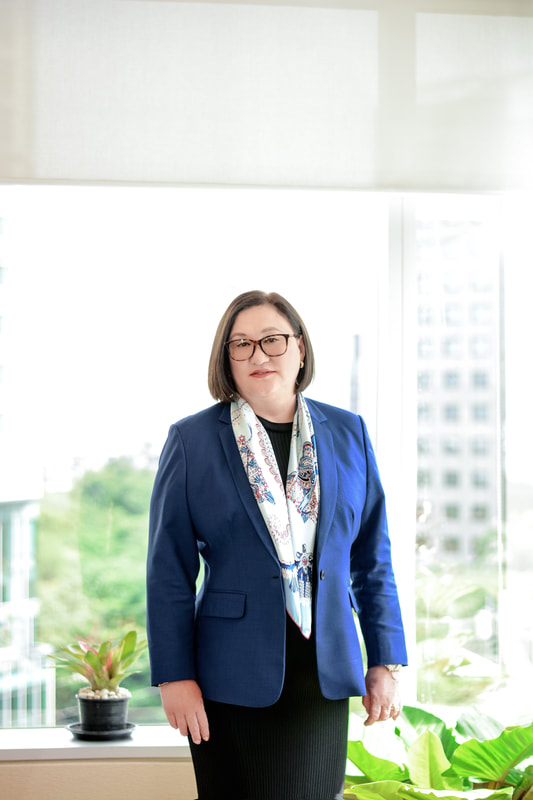
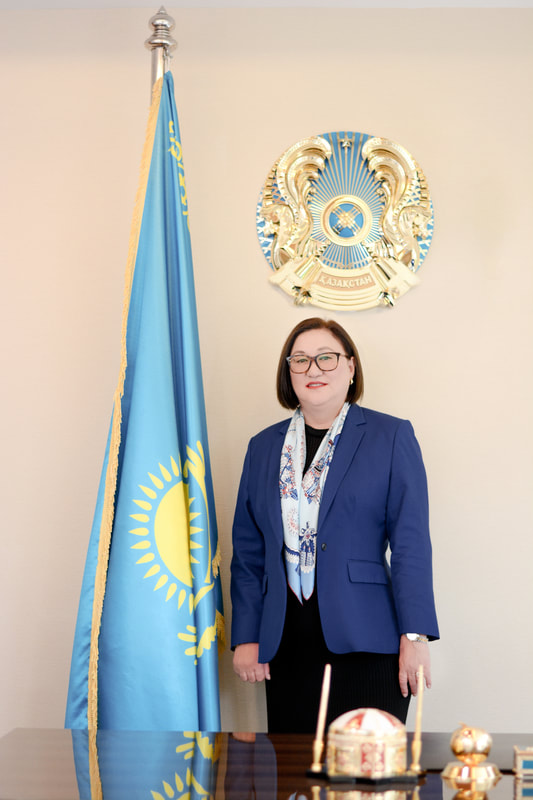
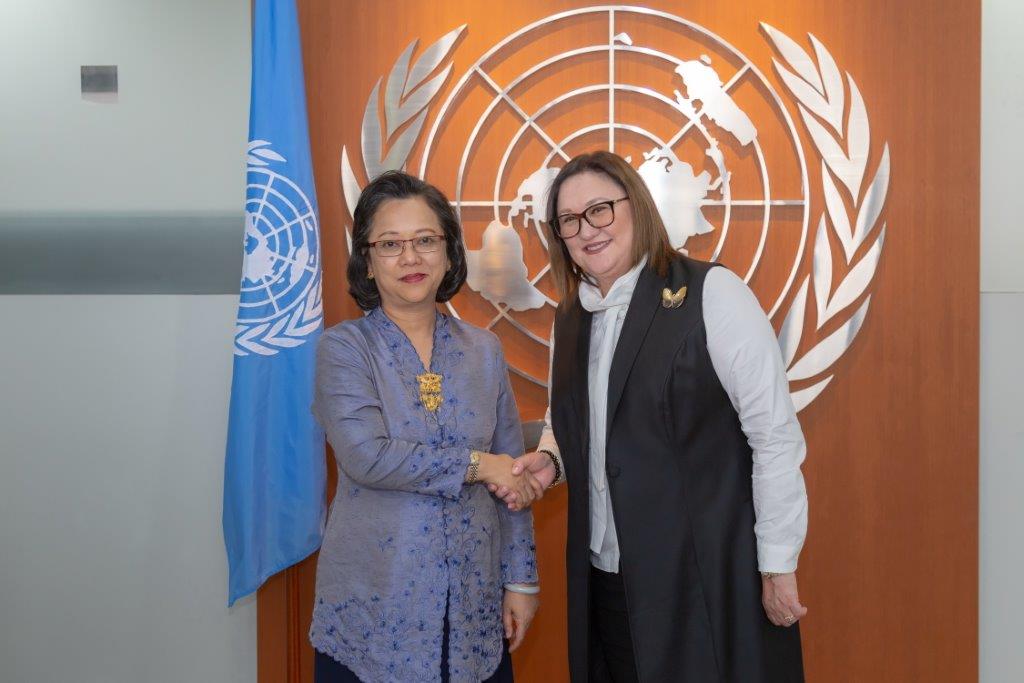
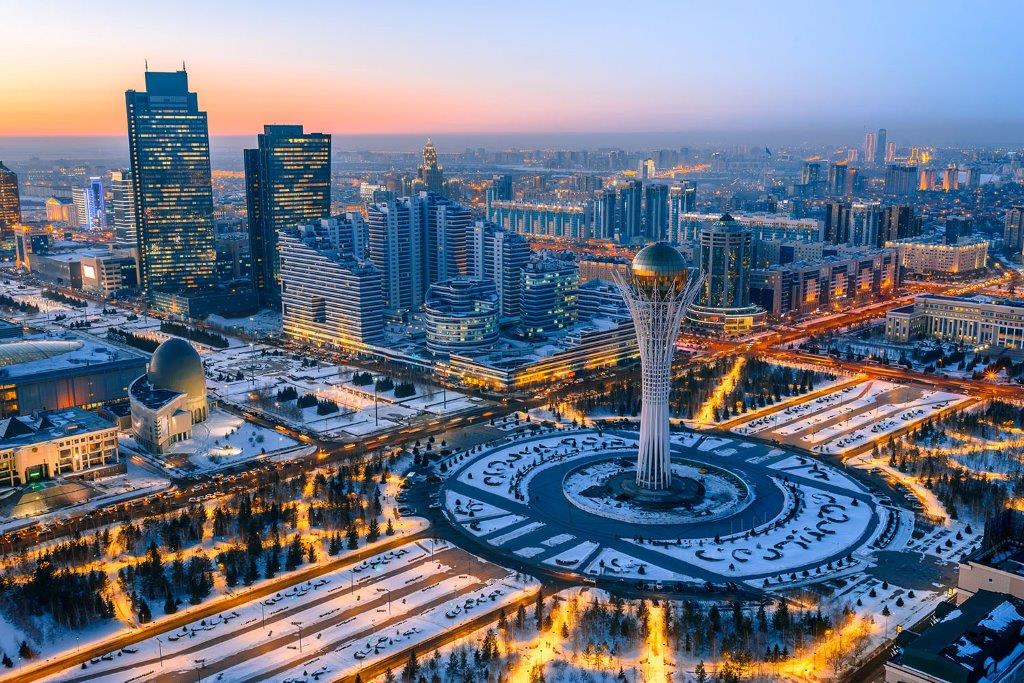
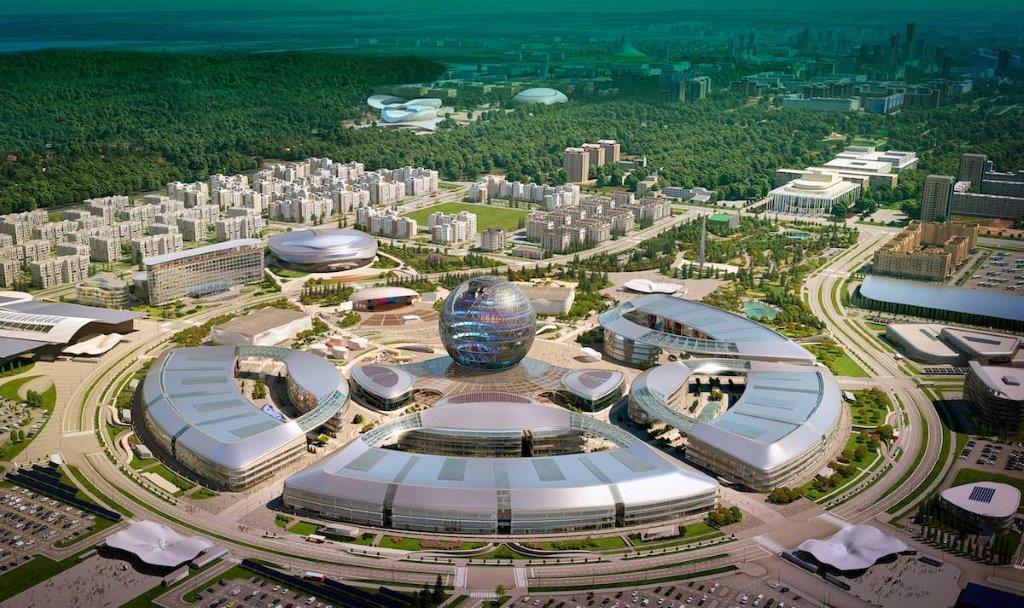

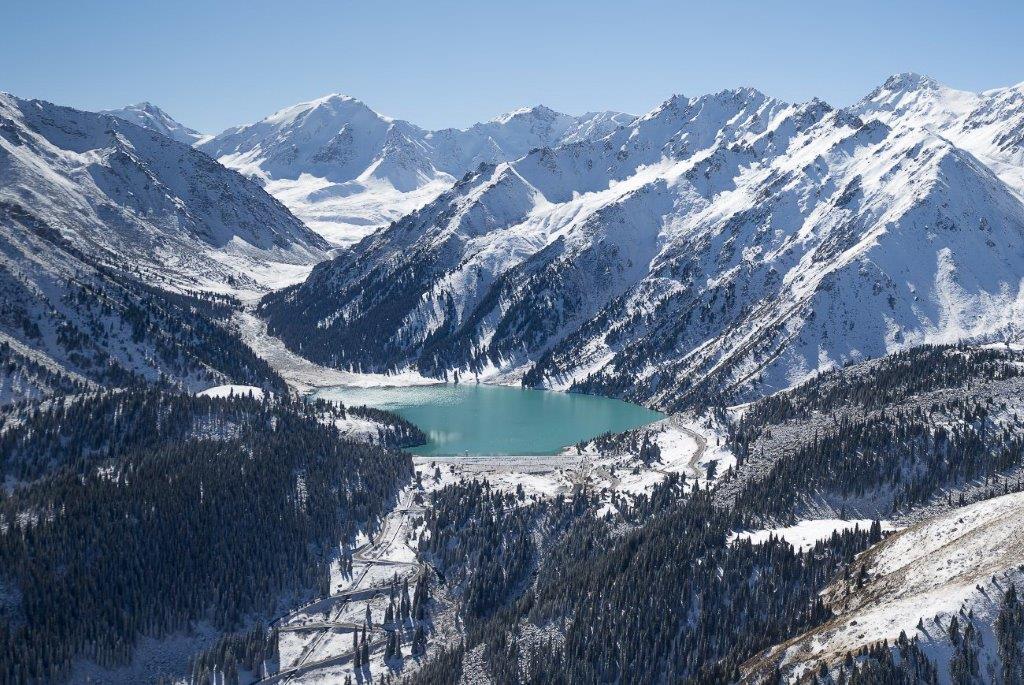
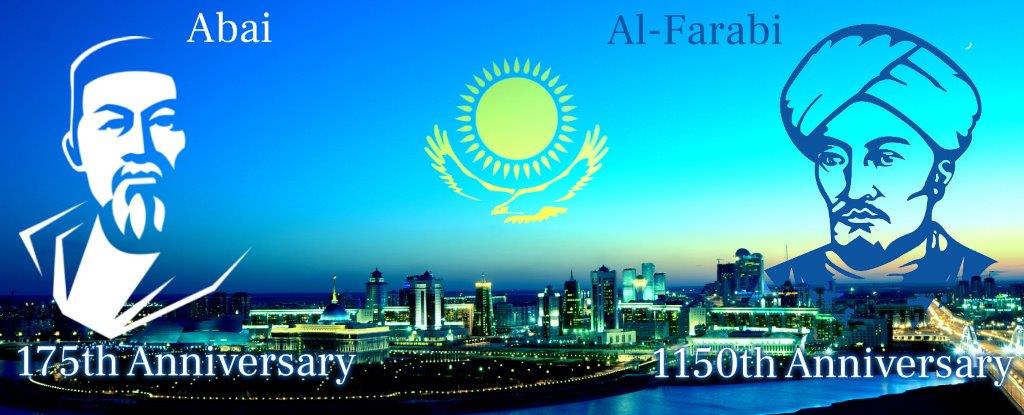
 RSS Feed
RSS Feed
















